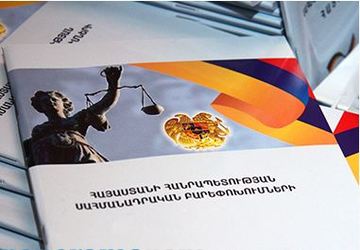

Bonus seats and the specter of a non-competitive “second round” election are viewed as threats to the democratic process by civil society groups and reform-minded MPs. In order to fully remove them from the constitution, guarantees for a “stable majority” need to be replaced with allowance for minority government.
The 2015 Constitution promised that Armenia would move toward a fully proportional parliamentary model. However, a number of other provisions serve to distort the translation of votes to seats in practice. They include provisions for various bonus seats and the exclusion of political parties from campaigning if no government can be formed and a “second round” vote is held.
Armenia’s Bonus Seat Provisions
Armenia’s National Assembly consists of a minimum of 101 seats that are allocated to political parties proportionally based on their share of the national vote (subject to an electoral threshold of 5% for parties and 7% for blocs of multiple parties). However, a few additional provisions provide for the allocation of bonus seats in different circumstances.
Despite Nikol Pashinyan’s My Step Alliance receiving 70% of the vote during the 2018 parliamentary election, electoral thresholds and the four ethnic minority seats handed them 88 of the 105 seats (84%) in the base allocation, triggering the effective opposition provision. As a result, the National Assembly was expanded with 27 additional seats, which were assigned to the opposition Prosperous Armenia Party and Bright Armenia Party.
CEC Rejects Bright Armenia Bonus Seat Interpretation
Nine months after the December 2018 parliamentary election, in September 2019, Arman Babajanyan left the Bright Armenia parliamentary faction but continued to sit as an independent MP. After he voted with the government on several matters related to a constitutional referendum and COVID-19 emergency measures, the Bright Armenia Party filed an application with the Central Electoral Commission (CEC) in June 2020, arguing that Babajanyan’s voting pattern entitled them to an additional “effective opposition” bonus seat, to water down the government’s majority back to two-thirds. The CEC rejected the application, pointing out that the Electoral Code only entitled the Bright Armenia Party to an additional seat in the event that Babajanyan resigns his seat or passes away. In September 2020, Babajanyan spearheaded the founding of a new opposition political party, stating that Bright Armenia and Prosperous Armenia were ignoring the country’s pressing issues in favor of artificial controversies.
The “Second Round” Election – The Armenian Constitution’s Ticking Time-Bomb
Besides bonus seats, the strongest guarantee of a “stable majority” is the provision for a “second round” election, provided for by Article 89 of the Constitution and elaborated on in the Electoral Code (Article 98). Under proportional systems, it is rare for a single party to command a majority of seats, and thus it is expected that a coalition will need to be formed among several parties. If such a coalition cannot be agreed upon within 28 days, however, existing legislation does not allow the largest party to attempt to govern with a minority government. Instead, a “second round” election is held, in which only the top two political parties can participate. Other parties can join them in a bloc but cannot contest the second round election independently.
Though the system resembles a runoff round in single-member district majoritarian systems, it would actually completely shut out all political parties, except for the two largest, from the parliament. This provision is heavily criticized by civil society groups in Armenia and viewed as a “poison pill” that was inserted into the 2015 Constitution by its Republican Party drafters as a tool to pressure smaller parties into joining a governing coalition.
Both the 2017 and 2018 parliamentary elections resulted in a single party receiving a stable majority; thus, the second round has not yet been a factor. However, a well-functioning, competitive multi-party proportional system can be expected to yield more balanced results in the future. Reformers acknowledge the urgent need to defuse the anti-competition provision now before it blows up in Armenia’s face.
Author:
Harout Manougian
This policy alert also available to download below
Subscribe to our
newsletter
Sign up for our monthly newsletter
and receive the latest EPDE news
Subscribe to our
newsletter
Sign up for our monthly newsletter and receive the latest EPDE news